ISEK Elections 2022-2024
Members of ISEK in full standing, are entitled to participate in the election of members to serve on the Board for the 2022-2024 term. Members in good standing will have received a link directly to the email on their membership account for the electronic vote. Only members who are fully paid for the current year (2022 membership expiry) are eligible to vote in the election. Please review the information below and vote before the election closing date of April 26, 2022.
If you have not received the voting link, please contact the Spostdocetariat to confirm your membership.
Council Nominations
There are seven positions available for the 2022 – 2024 term. Members may cast up to seven votes to elect the next Council Members. The seven people with the highest cumulative votes will be voted in for the 2022 – 2024 term.
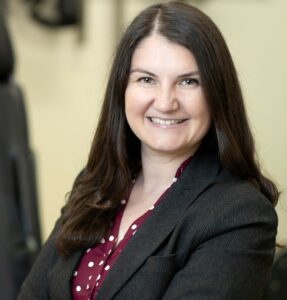
Filiz Ates, PhD
Filiz Ateş received her Ph.D. degree in 2013 from the Institute of Biomedical Engineering of Bogazici University in Istanbul. She worked as a research fellow at Faculty of Sports Sciences in University of Nantes, France (2014) and in Waseda University, Japan (2015). From 2016 to 2019, she worked at Mayo Clinic, Rochester, MN, USA, as a senior research fellow and as an assistant professor. Before joining the University of Stuttgart, Germany, she spent one year at the German Sport University, Cologne, as a senior researcher and lecturer (2019-20). Currently, she is the head of Experimental Biomechanics Group at the Faculty of Aerospace Engineering. Her research interests include tissue mechanics, sports biomechanics, human movement, musculoskeletal biomechanics, orthopedics biomechanics. She focuses on the behavior of skeletal muscles and its adaptation to aging, neuromuscular diseases, musculoskeletal problems, and exercise as well as muscular interactions, myofascial force transmission, the effects and implications of orthopedic treatments and rehabilitation. As a principle investigator, she is leading three ongoing projects funded by German Research Foundation (DFG) and Federal Ministry of Education and Research (BMBF). Her main motivation is to increase understanding of musculoskeletal system with cutting- edge research and teaching activities as well as contributing to research communities.

Laurent Bouyer, PhD
Dr. Bouyer received a Bachelor of Science degree in Honors Neurophysiology from McGill University and then a PhD from the Aerospace Medical Research Unit also at McGill. He then completed a postdoctoral fellowship at Université de Montréal on animal models of motor control after spinal cord injury. He is now a Full Professor in the Department of Rehabilitation at Laval University, the Director of the Neuroscience Research Center and a Researcher at the Center for Interdisciplinary Research in Rehabilitation and Social Integration (CIRRIS). His research program focuses on motor control and motor learning. Most of his research projects are carried out in interdisciplinary teams that combine health sciences and engineering, covering many facets of rehabilitation research. His research interests include understanding the neural circuitry underlying human movement control, measuring electromyography and movement both in the lab and in the real world, improving clinical tests using wearable sensors, characterizing early indicators of muscle fatigue during complex movements, and developing new robotic technologies and software for rehabilitation. He has published over 100 articles in peer-reviewed journals, on motor control, motor learning, and rehabilitation technologies. He is also the co-chair of ISEK 2022 that will be held in Quebec City next June.
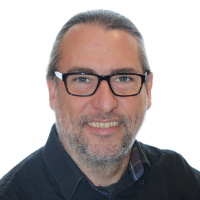
Corrado Cescon, PhD
Corrado Cescon is a senior researcher at the Rehabilitation Research Laboratory 2rLab of the University of Applied Sciences and Arts of Southern Switzerland. He graduated in Electronic Engineering and obtained a PhD in Biomedical Engineering at the Politechnic University of Turin, where he collaborated for several years as a post-doc at the Laboratory for Neuromuscular Engineering (LISiN) with Prof. Roberto Merletti. His main skills are signal processing, multichannel EMG, movement analysis and image processing. The fields of interest ranges from pelvic floor integrity after delivery, knee and shoulder stability, pain extent, tendon elasticity, muscle fatigue. Over these 20 years in research, he has published more than 50 publications on international journals and 100 presentations at international congresses and supervised master and PhD students.
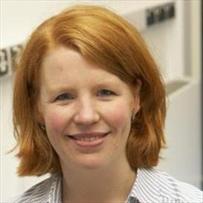
Emma Hodson-Tole, PhD
Emma Hodson-Tole obtained her Ph.D. degree in biomechanics and muscle physiology from The University of London in 2007. She worked as a postdoctoral fellow in The School of Applied Physiology at Georgia Institute of Technology, USA, before being awarded a Sir Henry Wellcome postdoctoral Fellowship, from The Wellcome Trust, and returning to the UK to work at Manchester Metropolitan University. She is currently Professor of Neuromuscular Biomechanics in the Musculoskeletal Sciences & Sports Medicine Research Centre at Manchester Metropolitan.
I have supported development and application of new approaches to extract information from, and combine the use of, ultrasound images and electromyographic data. The aim of my work is to improve measurement and monitoring of skeletal muscle health and behaviours, and to improve understanding of neuromuscular mechanics. I am committed to encouraging and supporting development of the next generations of scientists, and regularly contribute to public engagement and outreach activities communicating research to a wide range of non-academic audiences. I have regularly attended and contributed to ISEK congress in the past and would welcome the opportunity to contribute to the organisations important work promoting research and teaching of electrophysiology and kinesiology.
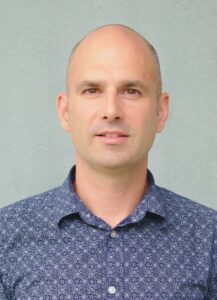
François Hug, PhD
François Hug received his PhD in human movement sciences from Aix-Marseille university, France (2003). He has been Full Professor at Nantes Université, France, where he led the MIP Lab until he moved to Université Côte d’azur, France, in 2021. He is a fellow of the Institut Universitaire de France and an honorary professor at the University of Queensland, Australia.
His research focuses on the neural control of movement in health and disease. His recent work demonstrated that we each have a muscle activation signature that, like our face or fingerprints, is unique to us. His research program aims to understand the origin of these individual muscle activation signatures and their role in the development/persistence of musculoskeletal disorders. Recently, he developed a neural framework based on the non-invasive recording of motor neurons to reveal synergies at the spinal motor neuron level. He has published >175 articles in peer-reviewed journals.
He serves on the editorial board of Journal of Electromyography and Kinesiology and Scandinavian Journal of Medicine and Science in Sport. He is an expert for the Consensus for Experimental Design in Electromyography (CEDE) project, which is an international initiative which aims to guide decision-making in recording, analysis, and interpretation of electromyographic data.
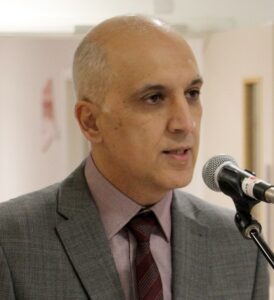
Omid Khaiyat, PhD
Professor Khaiyat is currently a Professor of Musculoskeletal Physiology and Health and Associate Dean of School of Health and Sport Sciences. He is also a qualified medical practitioner with licence to practice (UK).
Professor Khaiyat has used surface and fine-wire EMG for more than two decades in combination with other technologies in his research to investigate normal muscle function/health, musculoskeletal pathologies, and evidence-based rehabilitation with a particular focus on upper limb. He has established a comprehensive biomechanics lab with access to several other specialty labs, on-site physiotherapy and sport rehabilitation clinic, and S&C suite.
He is the lead investigator for several RCTs including Exercise and Nutrition Interventions in Age-related Sarcopenia, Impact of intravenous iron (Ferinject) on musculoskeletal function profiles in older adults with Iron Deficiency Anaemia (IDA), and Kinematics And Muscle Activation Profiles In Reverse Shoulder Arthroplasty. He is supervisor for several PhD projects.
Professor Khaiyat is the chair of the biannual Shoulder Rehabilitation Conference with the 3rd conference titled as “Zebras and Horses: Thinking outside the box in shoulder pain” to take place in November 2022. He is currently a member of scientific committee for European Society for Shoulder and Elbow Rehabilitation (EUSSER) and formal collaborator of the English Institute of Sport (EIS) for upper limb research.

Taian Vieira, PhD
Dr. Taian Vieira was Born in Rio de Janeiro, Brazil, in 1980. With a doctoral scholarship provided by the Brazilian Research Council, in 2011 he obtained the PhD degree in Biomedical Engineering from the Politecnico di Torino, under supervision of Prof. Roberto Merletti. From September 2011 to August 2016, Dr. Vieira was Associate Professor at the Universidade Federal do Rio de Janeiro. Currently, he is Assistant Professor at Politecnico di Torino.
Throughout his doctoral studies, In 2008 he received the student presentation award from ISEK and in 2011 he was the inaugural winner of the Emerging Scientist Award (ISB). He is Associate Editor for Frontiers in Physiology and member of the Editorial Board of the Journal of Electromyography and Kinesiology. His main research interests are in the field of muscle neurophysiology, posture control, EMG-Biofeedback and electrical stimulation applied to healthy and disabled subjects.
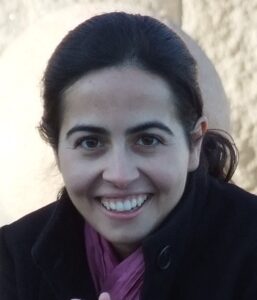
Silvia Muceli, PhD
Silvia Muceli is an Assistant Professor in Life Science Engineering at Chalmers University of Technology, Gothenburg, Sweden. She received her master’s degree in Electronics Engineering from the University of Cagliari, Italy, in 2007, and PhD in Biomedical Science and Engineering from Aalborg University, Denmark, in 2013. She worked at the University Medical Center Göttingen, Germany (2011-2017), until she moved to Imperial College London, UK, to work as a research associate at the Department of Bioengineering (2017-2019). Her research focuses on the development of high-density electrodes for electromyography and methods for EMG signal processing with applications in motor control. In this field, she is also active in the development of didactic material (e.g., JEK tutorial) and outreach activities with children. Her research interests also include biomedical signal modelling, sensorimotor development, and prosthetic control.
She is a member of the Editorial Board of the Journal of Electromyography and Kinesiology, Senior Member of the IEEE, treasurer of the Swedish Section of IEEE Women in Engineering, and organizing committee member of the Workforce for Inclusive Science at Chalmers. She has received the Excellence in Signal Processing Award by Texas Instruments, the Women & Technology Prize by Hewlett-Packard, and awards by the International Motoneuron Society.
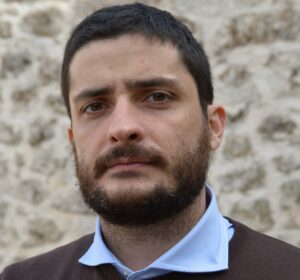
Giacomo Severini, PhD
Giacomo Severini is an Assistant Professor in Biomedical Engineering at the School of Electrical and Electronic Engineering. His research is focused on the study of human motor control and motor learning as a mean for developing novel concepts and tools for improving rehabilitation of impaired individuals. He is particularly interested in the development and use of robots in various aspects of the rehabilitation process, and in using surface electromyography as a mean for studying motor control in the impaired population. Dr. Severini received his MS and PhD degrees in Electrical Engineering and Biomedical Engineering from Roma Tre University in Rome, Italy, in 2008 and 2012, respectively. He worked as Research Associate at the Motion Analysis Laboratory of the Spaulding Rehabilitation Hospital in Boston from 2011 to 2015 and as postdoctoral researcher, under the supervision of Prof. Paolo Bonato, at Harvard Medical School from 2012 to 2015. He was also a research fellow at Ferrara University Hospital between 2013 and 2016.
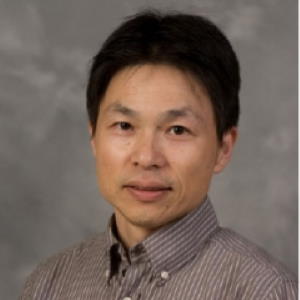
Minoru Shinohara, PhD
Minoru “Shino” Shinohara is one of the current ISEK Council Members. He is an Associate Professor in School of Biological Sciences and Director of Human Neuromuscular Physiology Lab at Georgia Institute of Technology, USA. He studies neuromuscular mechanisms for motor control and adaptation using various approaches, including EMG (interference/motor unit), mechanomyography (MMG), ultrasound (elastography/B-mode), TMS, EEG, and robotics. He received his PhD in Multidisciplinary Sciences from University of Tokyo in Japan. He worked there as an Assistant Professor, Pennsylvania State University as a Research Associate, and University of Colorado at Boulder as a Senior Research Associate before joining Georgia Institute of Technology in 2006. He has served as an Associate Editor of Medicine & Science in Sports & Exercise (2010-2020) and an Editorial Board Member of Journal of Electromyography and Kinesiology (2008-), Journal of Applied Physiology (2009-), Medicine & Science in Sports & Exercise (2009-2010, 2020-), Journal of Motor Behavior (2012-), and Journal of Physiological Sciences (2012-2015). He is the recipient of American Physiological Society Research Career Enhancement Award (2005), American College of Sports Medicine Visiting Scholar Award (2009), and American Society of Biomechanics Research Travel Award (2009). He is a Fellow of American College of Sports Medicine (2003-).
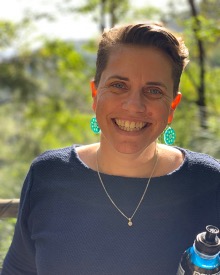
Kylie Tucker, PhD
During my 4-years as ISEK Spostdocetary (2018-2022) I have intentionally highlighted the diversity amongst our membership and conference attendees and worked with our council and membership to think broadly for award nominations and committee selection. We introduced subcommittees that strengthened our resolve to improve Communications, Member Services, and Diversity, Inclusion and Belonging. We now have an Early Career Researcher (postdoc) subcommittee and two postdocs who attend Council meetings. We have held one on-line congress and our current Chairs are making the most of ever-changing conditions to bring another congress to you in 2022. These are the things I am most proud of, having been on ISEK Council. I have a firm resolve to continue to engage with our membership, to encourage the sharing of knowledge/skills, and to move the diversity agenda forward. This includes the need to ensure that our members are rewarded for innovation and knowledge translation, and for supporting the development of those who start with less opportunity but with the right support can make a significant impact in our field. The ISEK community is built-on-giants, our current membership is strong, and I hope to help ISEK continue to adapt, move with the times, and maintain relevance.
